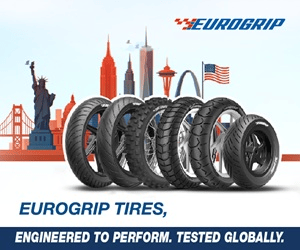SBS had some showstopping news at AIMExpo: Better Brakes! Back in 2021, SBS Friction A/S, the Danish manufacturer of brake pads announced a strategy to produce sustainable environmentally friendly binders. The first products in the new SBS Better Brakes-series were the popular SBS HF, SP, HS and MS ranges. These ranges comprise more than 70% of the brake pads sold by SBS. The transition of HF, SP, HS, and MS compounds is expected to be completed by Q3 2023. "We are always striving to create the better choice in brake pads, and we are doing exactly that with the new SBS Better Brakes-series," CSO, Christel Munk Pedersen told us at the tradeshow.
"If we are to succeed, we are required to hit hard and with maximum effect from the beginning. That is why we have chosen to transition our fast-movers first and will simply discontinue the old compound formulas," she said. But it was easier said than done. "Because of significant similarities in performance characteristics of the new SP and HS-ranges and with an intention of enabling easier product selection for dealers. SP will be discontinued and merged into the HS product range. The series merger will happen gradually throughout Q3 2023."
The SBS Better Brakes-series is designed without Copper, Nickel (sintered compounds) and Antimony (ceramic compounds), which are replaced with an iron-based formula, which gives an improved Coefficient of Friction while also being a more environmentally friendly resource. Being green doesn't mean being less efficient… quite the opposite. "The re-engineered compound formulas enable an improved Coefficient of Friction that provides a more efficient brake grip throughout the braking sequence. This results in a significantly reduced stopping distance up to 12%," claims Christel.
"We continuously seek to improve the already well-established expectation of SBS brake product quality and what better way to do so, than with products that improve brake performance on millions of motorcycles and scooters worldwide. That we also benefit the environment, is indeed a positive added value," concludes Christel Munk Pedersen.
















